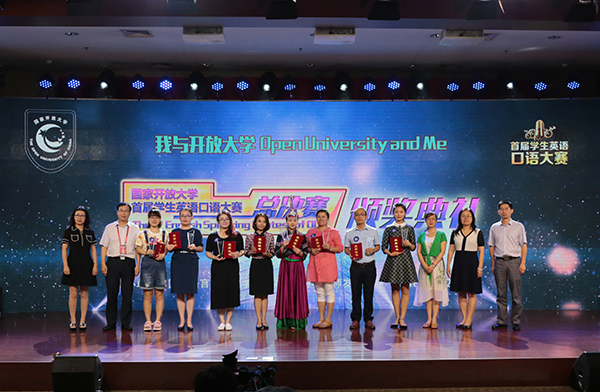 "I think arrogance is a person’s biggest enemy, and continuing to learn is the best way to defeat it." When contestant No. 3, Wang Haoyu, passionately uttered these words, the entire audience broke into loud applause. Who would have thought that someone like this, with a doctorate in medicine, would come to the OUC for further education?
"I think arrogance is a person’s biggest enemy, and continuing to learn is the best way to defeat it." When contestant No. 3, Wang Haoyu, passionately uttered these words, the entire audience broke into loud applause. Who would have thought that someone like this, with a doctorate in medicine, would come to the OUC for further education?
To further enhance the OUC community and enrich campus culture, as well as show the level of English some students have achieved, the OUC launched its 1st English Speaking Contest in December 2017. All branches were active in organising the preliminary competitions, from which 121 outstanding contestants from 27 branches were promoted to the semi-finals, with 38 then making it to the finals. These were held on June 22, 2018, in the OUC’s Weishanzhuang Conference Centre. After a fierce competition, two first-prize winners, four second-prize winners, six third-prize winners were selected from among English majors, and four first-prize winners, eight second-prize winners, 14 third-prize winners from among non-English majors; 10 speeches were named "most popular"; and 15 branches were recognised for organisational excellence.
Wang Li, deputy director of the Higher Continuing Education Division of the Department of Vocational and Adult Education, Ministry of Education (MOE); Liu Chengbin, investigator for the Beijing Municipal Committee; Li Linshu and Liu Chen, vice presidents of the OUC; and deputy secretary of the CPC Party branch, Liu Xianghong, were present at the finals.
The two main groups, English majors and non-English majors, included over 30 majors: Social Work, Pre-school Education, and so on. Contestants included military officers in their twenties, seniors, the disabled, and ethnic-minority students from remote areas. They told their English-learning stories in vivid English, conveying how they pursued lifelong learning as OUC students.
Wang Haoyu in his speech recalled his thrilling experiences working as a surgeon. He graduated from Xi'an Jiaotong University with a PhD in Medicine, and is currently working in the Second Affiliated Hospital (Northwestern Hospital) of the university. In his first year there, his arrogance nearly led to the death of a patient. This was an important lesson, and made him realize his imperfections. As a result, he decided to enrolat the Xi'an branch of the OUC to study Public Utilities Management. In his words, continuous learning settles the mind and serves the interests of patients. What’s more, the OUC's online programmes allowed him to fit his studies into his busy schedule.
Zhang Minghe of Shanxi Province turns 87 this year. He graduated from the Taiyuan University of Technology in 1955 with a degree in Power Systems, and has worked as a university teacher, president of the University for Workers and Staff, and an engineer. Currently, he is studying computers and smart-phone technology at the Open University for Older Adults, and has also taken oral-English classes. He spoke in fluent English about the changes the OUC has brought to his life since he retired. For older adult students at the OUC, learning is not only a way of gaining knowledge, but also of cultivating one’s mind and making life richer and more colorful. What’s more, improving his English-speaking skills has expanded his horizons.
Lu Lina, a student in the OUC School of Education for the Disabled (Shenyang branch), turns 40 this year. A congenital illness led to her reaching a height of only about 1.2 meters, yet her physical weakness has been coupled with mental strength. She achieved an excellent result on the college-entrance examination, but for health reasons unfortunately could not attend college. Yet this unjust fate could not keep her down, and in 2009 she entered the School of Education for the Disabled, where she studied hard and never missed a class. As monitor, she helped other students with their studies. She also took an examination offered by the Shenyang Disabled Persons' Federation, and became an officer for the disabled in her community.
During the competition, the contestants appeared poised and calm. They presented their prepared speeches in fluent, clear and pleasing English, and answered questions from the judges meticulously and with flashes of humor. Their vivid speeches moved everyone, sometimes to sympathetic smiles, sometimes to applause. Among the English majors, Zhu Xiaoyang from the Shenzhen branch and Wang Huan from the Beijing branch were awarded first prize; Wang Shuangshuang from the Hunan branch and 3 other students were awarded second prize; and Zou Yanmei from the Sichuan branch and 5 others were awarded third prize. Among the non-English majors, Wang Haoyu from Xi'an Branch and 3 others were awarded the first prize; Yang Xiaobo from the Henan branch and 7 others were awarded second prize; and Lu Linna from the School of Education for the Disabled (Shenyang branch) and 13 others came third.
Huang Zhenhua, a professor at the University of International Business and Economics (UIBE), former vice president of the UIBE, and Economic and Commercial Counselor of the Chinese Embassy in Chicago, commented that "there are several differences between today's English speaking contest and similar competitions at ordinary universities. First, these 38 contestants were selected from among 121 semi-finalists, who came from among the 3.6 million students in the OUC system. To some extent, these 38 students reflect the level of the 3.6 million OUC students. Second, these contestants are telling their life stories. I was particularly struck by the 87-year-old, and the surgeon who has a PhD but still enrolled at the OUC. Their stories show that lifelong learning is becoming normal in China, and why the OUC exists."
Li Linshu, vice president of the OUC, said that the competition is first of all a kind of commemoration. This year happens to be the 40th anniversary of the reform and opening up, and also the 40th anniversary of the founding of the CCRTVU, approved by Deng Xiaoping. Of those 40 years, many inspirational stories of growth and cultivation can be told, similar to what the contestants have presented in their speeches, and which have moved and inspired several generations. Second, the competition is a stage that enables students to present themselves and their personalities, as well as the spirit and culture of the OUC as a whole. Third, the competition allows the OUC to test the quality of its training: whether its curricula and course arrangements are reasonable, and whether the teaching methodology is appropriate. Fourth, the competition is a starting point for future innovation. Li Linshu said that in the new era, we are in the process of enhancing the management of continuing education, building a society in which continual learning is normal, and enhancing the national culture. The contest is an accumulation of experience, and belongs to the pursuit of teaching reforms and innovations at the OUC.
The competition has allowed students to demonstrate their international awareness, enhanced their sense of belonging, and helped create a positive and healthy campus culture. According to the article OUC: Building a Platform for Lifelong Education on Xinhuanet, "the OUC is committed to promoting lifelong learning across the country. Currently, it has 3.6 million registered students, including workers, farmers, soldiers, doctors, teachers and retired people. In addition to academic education, the OUC offers online lectures, diverse and informative webinars, and open classes. It also provides enterprises and communities with public services, including distance learning and other forms of education and training, as well as IT consultation."
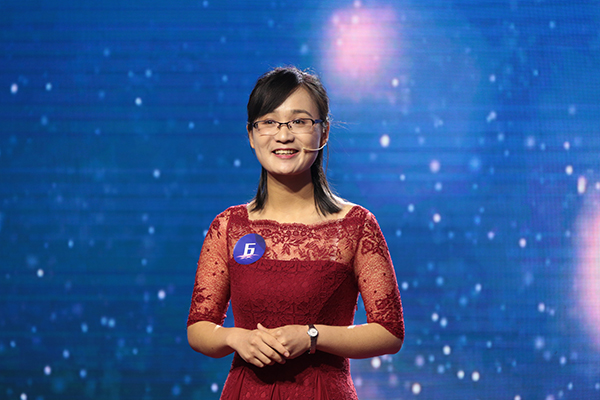 First-prize winner, non-English majors: Liu Wei from the Hunan branch
First-prize winner, non-English majors: Liu Wei from the Hunan branch

First prize winner, non-English majors: Wang Haoyu from the Xi'an branch
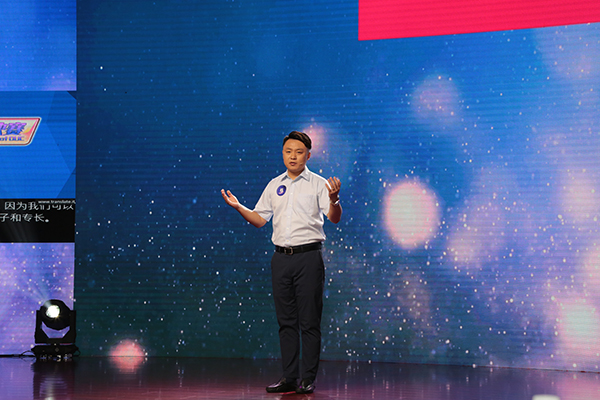
First prize winner, non-English majors: Sun Zhe from the Dalian branch

First prize winner, non-English majors: Han Xiaoxiao from the Hunan branch
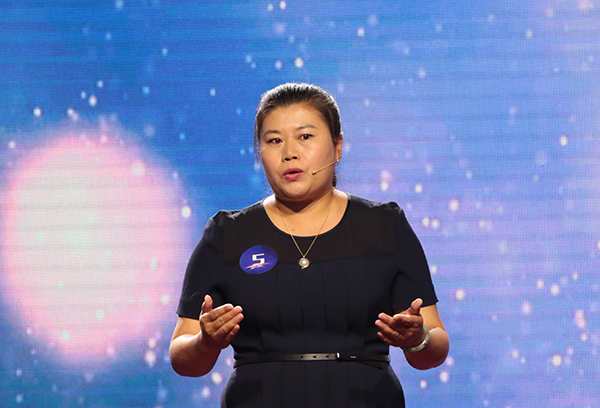
Second prize winner, non-English majors: Lu Changxia from the Beijing branch
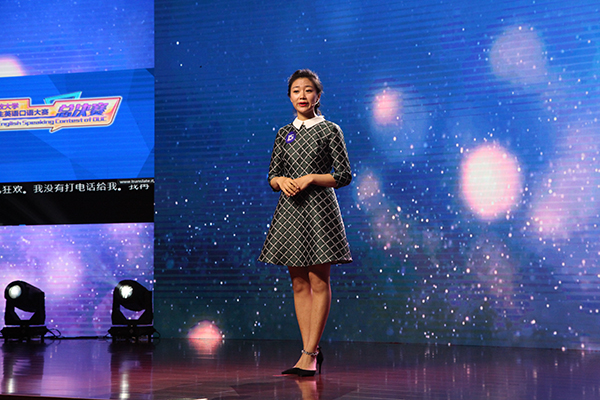
Second prize winner, non-English majors: Dong Jingzhe from the Dalian branch
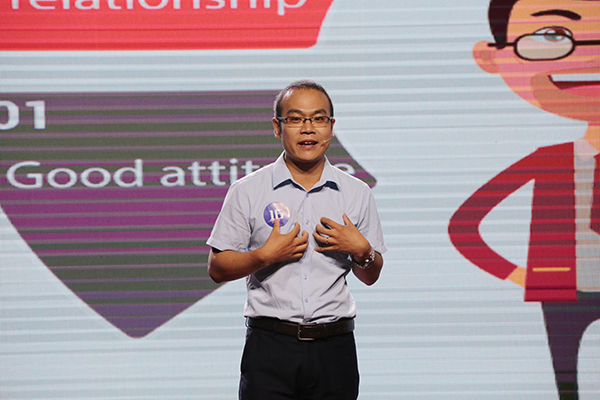
Second prize winner, non-English majors: Yang Xiaobo from the Henan branch
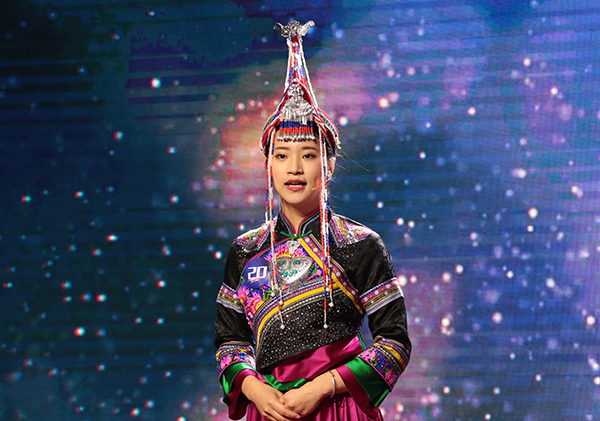
Second prize winner, non-English majors: Zheng Ya from the Zhejiang branch

Second prize winner, non-English majors: Gong Xiaoxue from the Sichuan branch
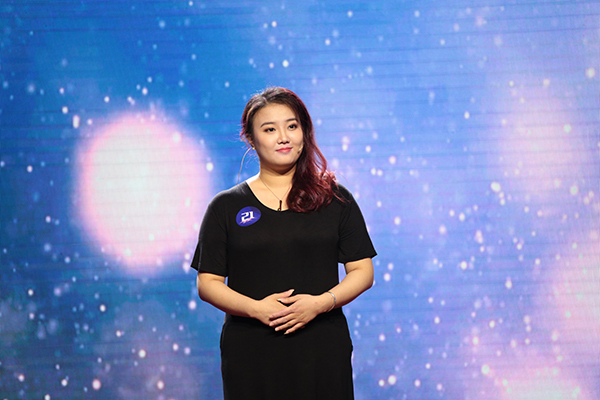
Second prize winner, non-English majors: Wen Xiaochun from the Guangdong branch
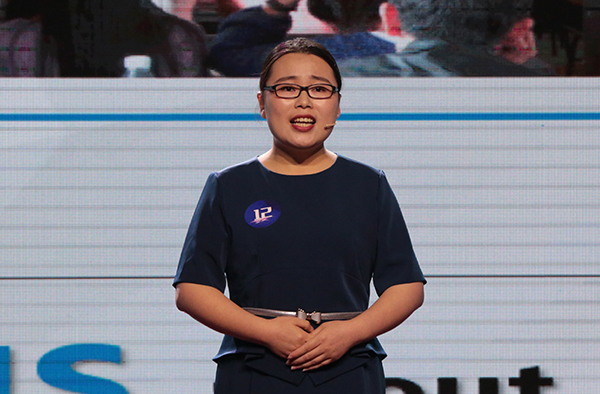
Second prize winner, non-English majors: Liu Jia from the Zhejiang branch
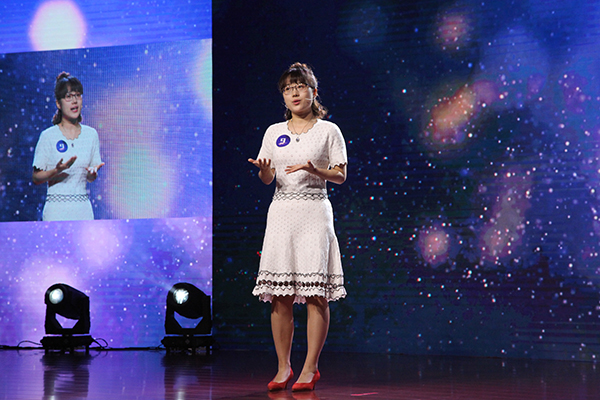
Second prize winner, non-English majors: Zhao Dan from the Beijing branch

First prize winner, English majors: Zhu Xiaoyang from the Shenzhen branch
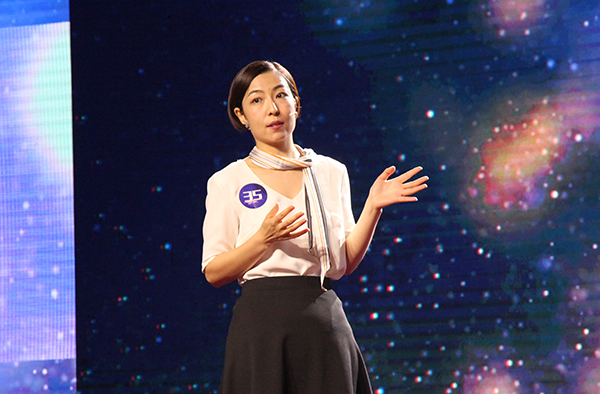
First prize winner, English majors: Wang Huan from the Beijing branch
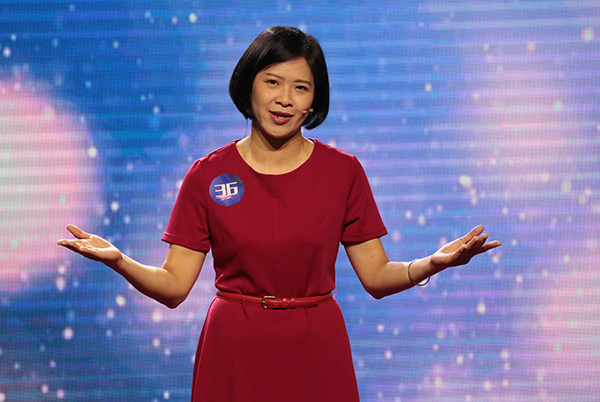 Second prize winner, English majors: Wang Shuangshuang from the Hunan branch
Second prize winner, English majors: Wang Shuangshuang from the Hunan branch
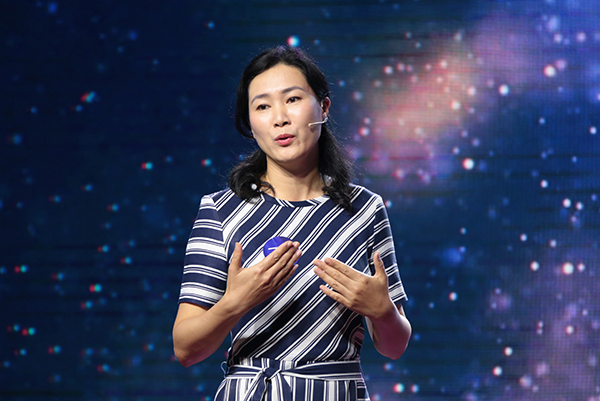
Second prize winner, English majors: Jia Chun from the Beijing branch
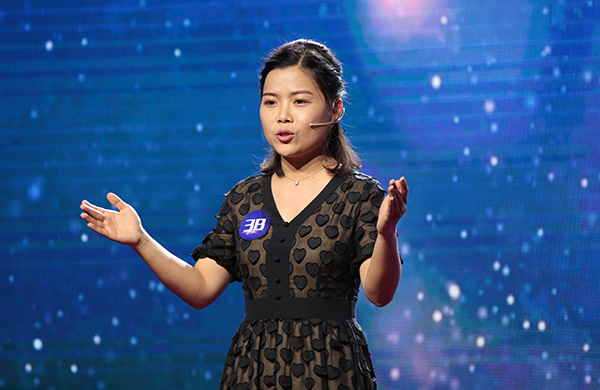
Second prize winner, English majors: Jiang Yueyuan from the Hunan branch

Second prize winner, English majors: Huang Huirong from the Guangzhou branch
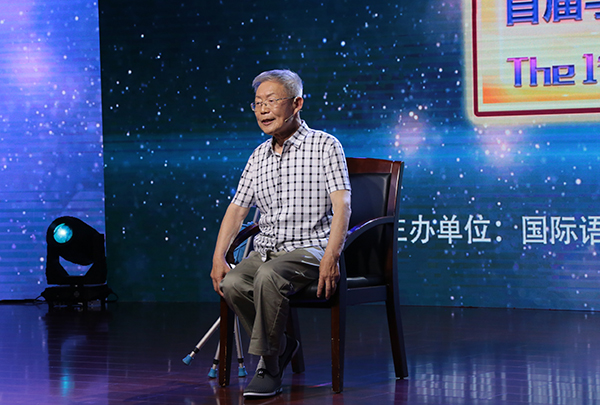
Special contestant from the Taiyuan Experimental School: Zhang Minghe
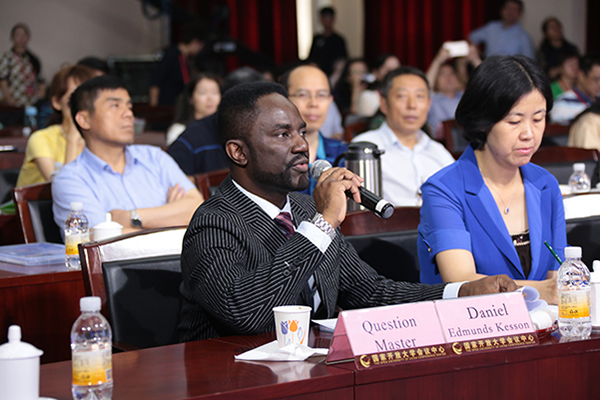
Question Master Daniel Edmunds Kesson, Chief Foreign Teacher at the New Concept Training School

Judge Mr. Eric Falgout, senior foreign oral-English teacher, has taught at China Agriculture University, Beijing University, the International Department of the Experimental School Affiliated with Beijing Normal University, the New Oriental School, and Global Education & Technology (GEDU). He has served as a judge for national oral-English competitions several times.
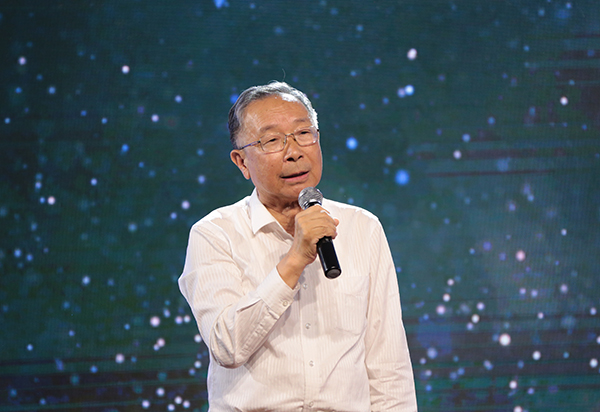
Lead judge Huang Zhenhua is a UIBE professor, former vice president of the UIBE, and Economic and Commercial Counselor for the Chinese Embassy in Chicago. He once served as a member of the MOE Foreign-Language Teaching Advisory Committee for Vocational Education.
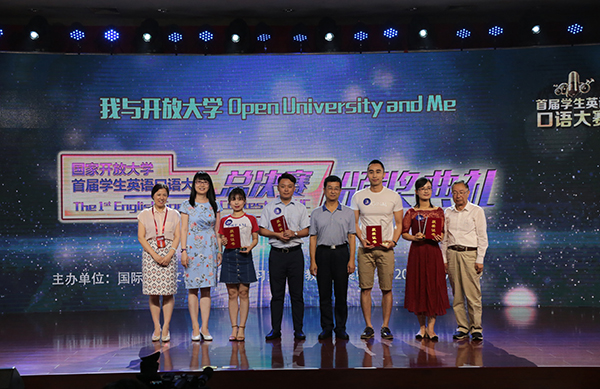
Honoured guests presenting the 1st-prize-winning non-English majors with their awards.

Honoured guests presenting the 2nd-prize-winning non-English majors their awards.
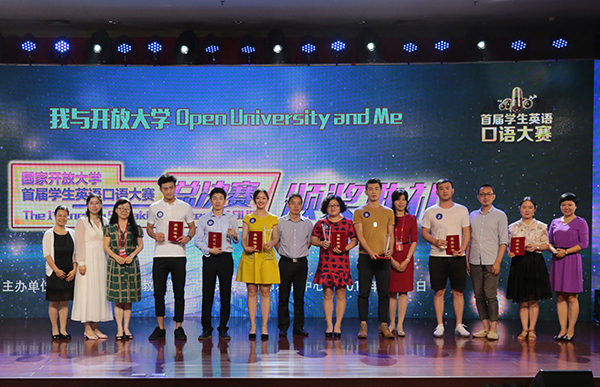
Honoured guests presenting the 3rd-prize-winning non-English majors their awards.
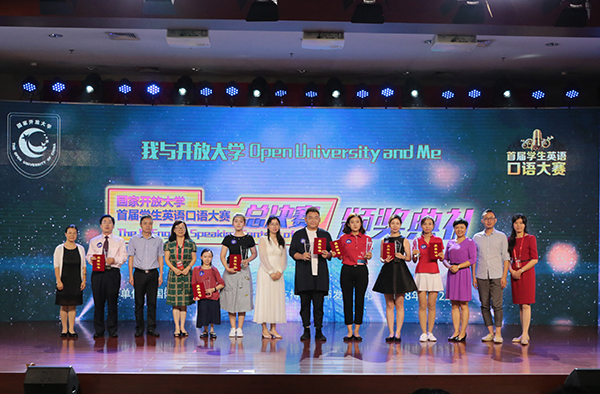
Honoured guests presenting 3rd-prize-winning non-English majors their awards.
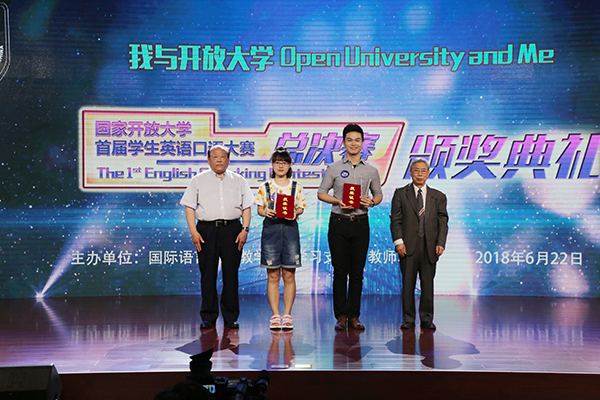
Honoured guests presenting 1st-prize-winning English majors their awards.
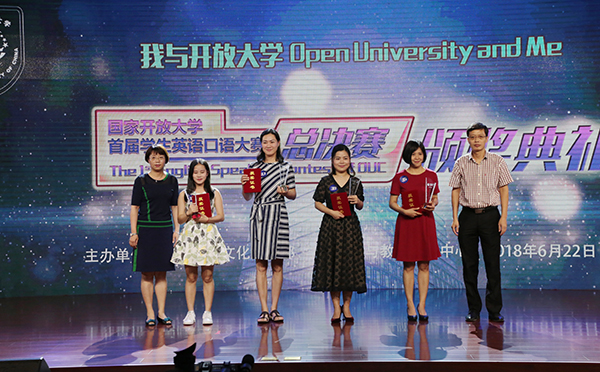 Honoured guests presenting 2nd-prize-winning English majors their awards.
Honoured guests presenting 2nd-prize-winning English majors their awards.
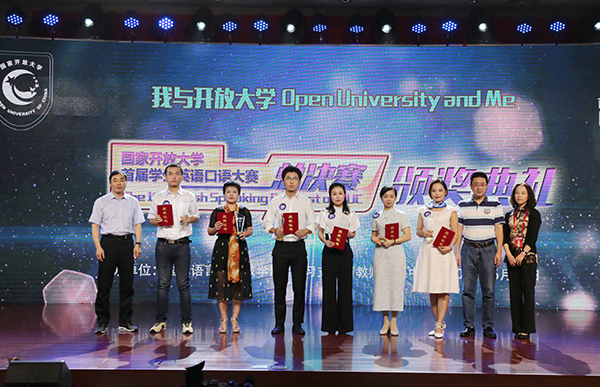
Honoured guests presenting 3rd-prize-winning English majors their awards.
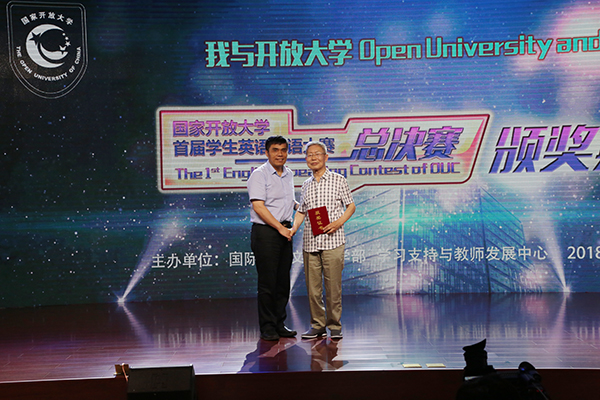
Li Linshu, vice president of the OUC, presenting a special prize to Zhang Minghe.
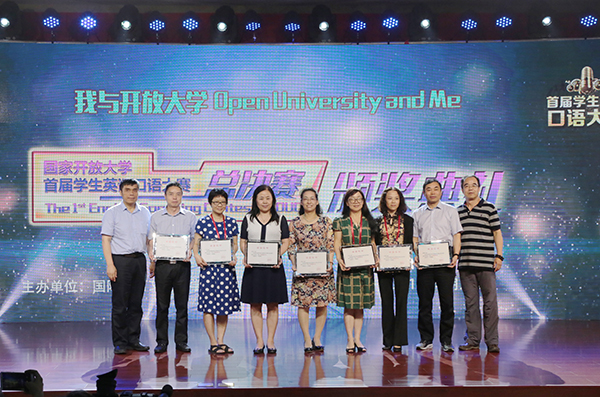
Honoured guests presenting the organisational prizes.
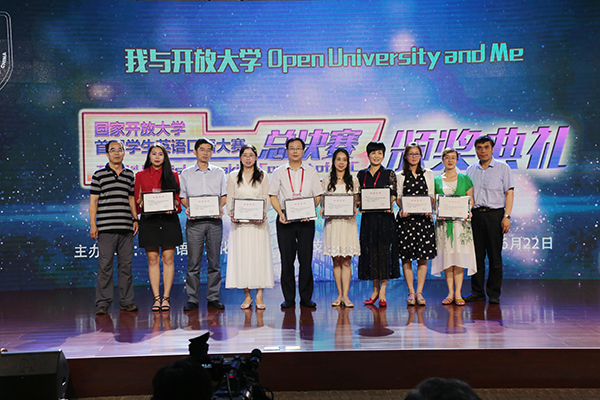
Honoured guests presenting the organisational prizes.
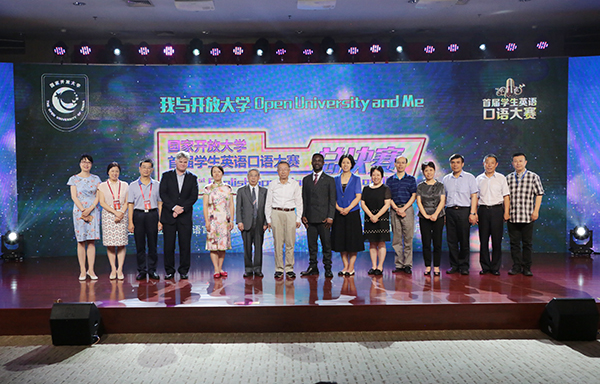
Judges and guests
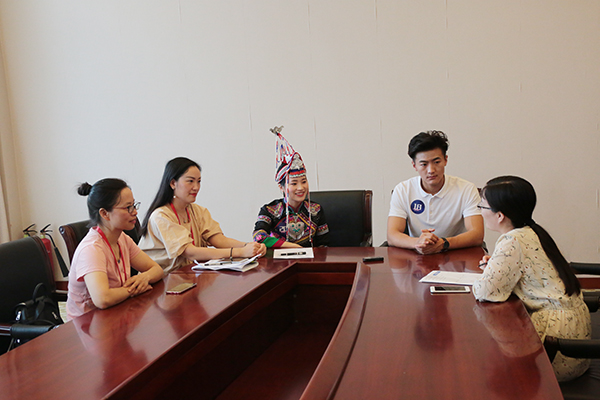
Media interview
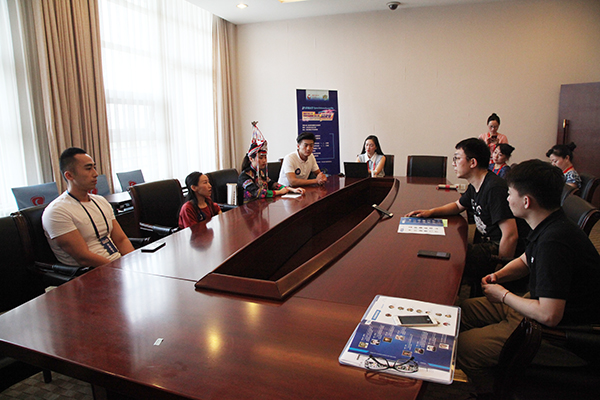
Media interview
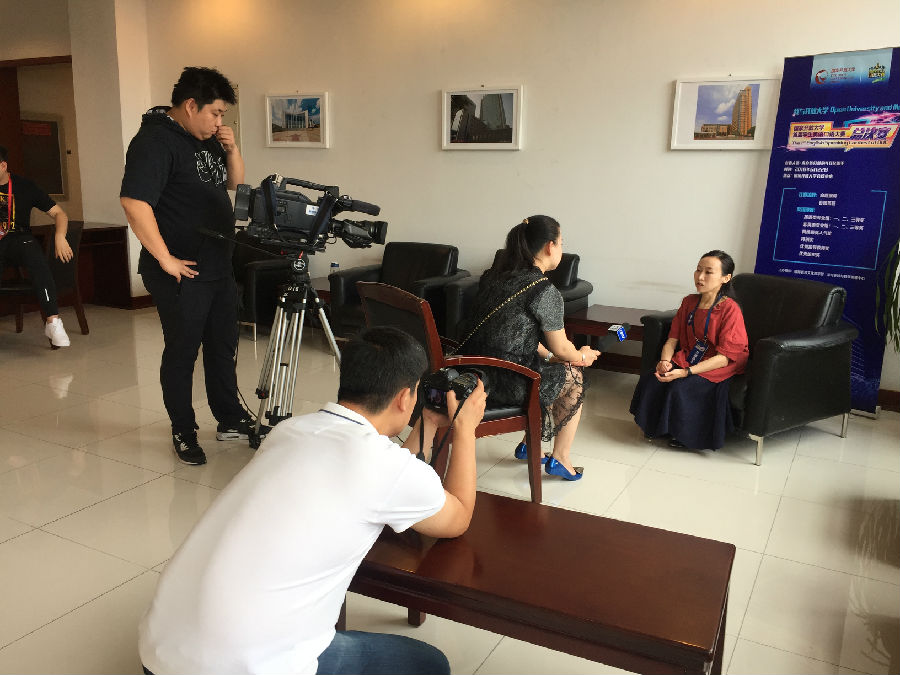
A CETV reporter interviewing Lu Linna, a student at the OUC School of Education for the Disabled (Shenyang branch).
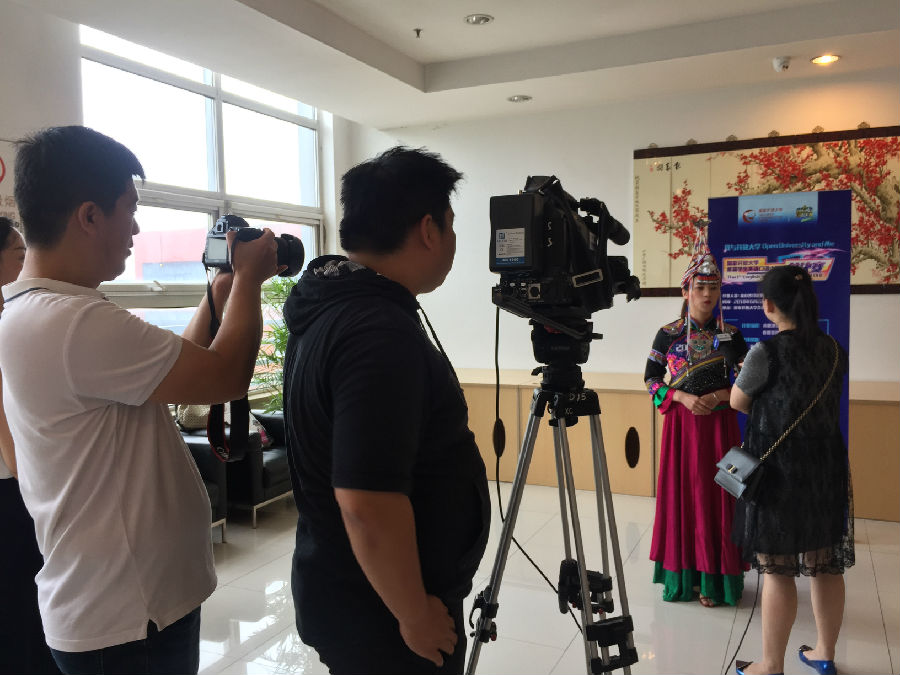
A CETV reporter interviewing Zheng Ya, a student from an ethnic minority.
By He Jing and Zhuge Huanyu Photographers: Yu Zhangli and Zhuge Huanyu, OUC